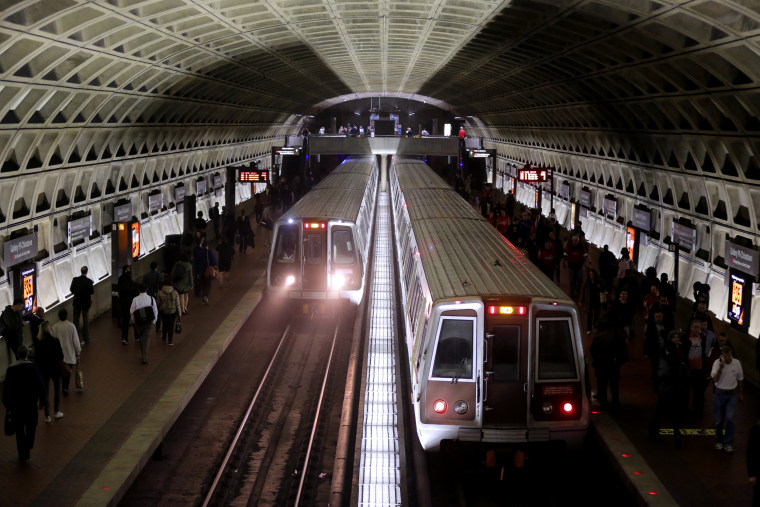At a White House meeting a couple of years ago, Puerto Rico's then-governor, Ricardo Rossello, made a brief pitch to Donald Trump in support of statehood for his territory. The president responded by suggesting that if the governor could "guarantee" that the island would elect two Republican senators, statehood would become "a very quick process."
The comments came to mind today when Trump told the New York Post that the District of Columbia will never become a state unless the nation has "some very, very stupid Republicans around."
"DC will never be a state," Trump told The Post on Monday during an exclusive interview in the Oval Office. "You mean District of Columbia, a state? Why? So we can have two more Democratic -- Democrat senators and five more congressmen? No thank you. That'll never happen."
It's worth noting for context that Trump, two months into his presidential campaign five years ago, expressed some tepid support for D.C. statehood, suggesting this is another issue in which the Republican has abandoned the position he presented to voters.
Let's also not overlook the fact that the president's arithmetic is a mess. If D.C. became a state, given its population, it would get one U.S. House member -- up from zero -- not five.
But even putting these relevant details aside, what's striking is Trump's willingness to accidentally tell the truth. For years, Republicans have tried to come up with seemingly non-partisan reasons to reject D.C. statehood, at least trying to keep up appearances. The idea is, there's value in trying to come up with principles to serve as the basis for policy arguments.
The president has no use for such niceties, so he blurted out his genuine beliefs, just as he did in response to the same question about Puerto Rico.
It also serves as a reminder that 700,000 American taxpayers in the nation's capital will continue to have no representation in the United States Congress.

